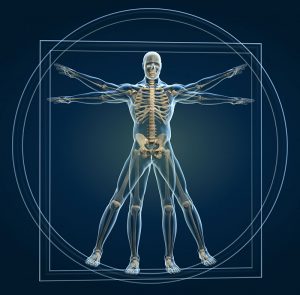Like many organs, the kidneys have their own circadian rhythm. This internal clock affects your electrolyte balance, hydration and a variety of factors.
The kidneys play a variety of roles in the human body. They create urine, which disposes of metabolic wastes, but this is just the first of their vital functions. A new study has discovered the internal circadian rhythm of the kidneys, which may be used to improve health care in a variety of ways.
Kidney Function: A Key to Good Health
Your kidneys lay just below your rib cage, embedded in the tissue on either side of your back. As the main organs in the renal system, they filter your blood constantly throughout the day to remove wastes that are excreted as urine. Your blood enters a nephron, where wastes diffuse out. Through an intricate series of tubules, the kidneys excrete substances, reabsorb others and maintain a healthy water and electrolyte balance.
Your kidneys are important in the metabolism of many hormones and pharmaceutical drugs. They also sense how hydrated your body is and adjust the excretion of water, salt and other electrolytes accordingly. Although we can live with just one healthy kidney, we have evolved to have two of these bean-shaped organs. This is likely due to their importance in the human body. We cannot live long without functioning kidneys as waste products, water and electrolytes will quickly build to dangerous levels, so Mother Nature has made sure we have a spare.
The Circadian Rhythm of the Renal System
 Doctors and medical scientists already knew that kidneys have a complex 24-hour rhythm, but a new study has linked this system to light and dark phases. Excretion increases in the early dark hours, which lowers fluid levels and likely contributes to the dip in blood pressure that most people experience at night. However, the kidneys slow their production of urine as the night goes on, to allow us to sleep uninterrupted.
Doctors and medical scientists already knew that kidneys have a complex 24-hour rhythm, but a new study has linked this system to light and dark phases. Excretion increases in the early dark hours, which lowers fluid levels and likely contributes to the dip in blood pressure that most people experience at night. However, the kidneys slow their production of urine as the night goes on, to allow us to sleep uninterrupted.
This internal rhythm appears to be caused by the expression of the well-known circadian rhythm master gene BMAL1. When research subjects had this gene turned off, their kidneys no longer followed a light-dark cycle. Excretion of drugs in the kidneys also appears to be controlled by a circadian rhythm, which means that drugs taken at different times of day may have differing effects and different levels of side effects and toxicity.
The Health Impact of a Renal Light-Dark Cycle
What does this new chronobiology research mean for average people? While this may seem like a small discovery, better knowledge of the circadian rhythm of kidneys may affect health care in a variety of ways. For example, blood pressure and cardiovascular function are dependent on the electrolyte and fluid balance maintained by the kidneys. High blood pressure can cause renal damage, which in turn creates higher blood pressure in an endless cycle. In addition, many drugs are excreted by the kidneys. If kidneys are processing these drugs differently throughout the day, adjusting doses or the timing of medications can increase healing, decrease side effects and reduce the chances of overdose or toxicity.
The kidneys affect many aspects of our bodies, keeping blood clean and balanced so it can effectively deliver nutrients and excrete waste. Understanding the innate light-dark cycles of these tiny organs can improve health care for a variety of diseases.







